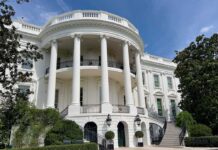
(HorizonPost.com) – A panel of judges from the Tennessee Appeals Court on Monday heard oral arguments in a lawsuit challenging whether the families of the victims of the March Covenant School shooting in Nashville have the right to intervene to block the release of police records on the shooting, the Associated Press reported.
The murderer left behind at least twenty journals, a manifesto, and a suicide note, and the debate over public access to those documents has pitted the victims’ families against a group of plaintiffs seeking access.
Earlier this year, the coalition of plaintiffs, which includes two news organizations and a Tennessee state Senator, filed a public records request with the state to obtain the documents. After the Metro Nashville Police declined the request, the plaintiffs filed suit.
Attorneys with the city government said the records would be made public once the investigation is officially closed, a process that could take months. The plaintiffs argued that since the suspect was killed by police, the investigation is essentially over and the records should be released.
In a May ruling in Chancery Court, the judge, I’Ashea Myles, said a group of over 100 families from the school, who are fighting to keep the documents from going public, could intervene to stop their release.
In Monday’s hearing, an appellate panel heard arguments on whether Judge Myles acted within the law when she permitted the families to intervene.
Attorney Eric Osborne who represented the families at Monday’s hearing said the judge’s ruling was correct, arguing that there is no one with a greater interest in the case than the children and families affected by the shooting. The families submitted to the court a report from a childhood trauma expert who said releasing the documents “will only aggravate and grow their psychological harm.”
Paul Krog, the attorney representing one of the two news organizations, said the arguments presented by the families, along with those from the school and the church that runs it, are policy disputes rather than legal arguments and should be determined by the legislature rather than the courts. He said that the case is about what the statute says and not about “what public policy ought to be.”
Copyright 2023, HorizonPost.com














